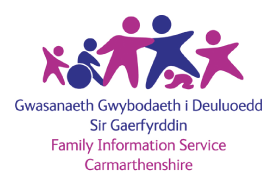Home schooling - Elective Home Education (EHE)
Page updated on: 20/02/2024
Home education is a term used to describe when parents and carers educate their children at home instead of sending them to school. Home educating your child is a decision which should not be taken lightly. It will mean a major commitment of your time, energy and money.
If you’re considering educating your child at home, you will need to provide a suitable education. The style of learning should be:
- Broad: It should introduce children to a wide range of knowledge, understanding and skills.
- Balanced: Each part allotted sufficient time to make its special contribution but not such that it pushes out other essential parts of the learning.
- Relevant: Topics being used in such a way as to bring out their application to the child’s own experience, to adult life, and to give due emphasis to practical aspects of learning.
- Differentiated: Your method of educating your child matching the child’s abilities and aptitude, and sufficiently challenging so that your child can show that progress is being made.
You have a right to educate your child at home providing you fulfil the requirements of Section 7 of the Education Act, 1996 which places a duty on the parents of every child of compulsory school age to receive efficient full-time education suitable to their age, ability and aptitude, and to any special educational needs that they may have, either by regular attendance at school or otherwise.
The phrase "full time" can be interpreted differently, since a child's education at home is often formulated on an individual basis. If you choose to home educate your children you must be prepared to assume full financial responsibility, including bearing the costs of any public examination. It is especially important that you consider the nature of the education you intend to provide for your child before you begin to educate them at home. For example, you should think about the areas of learning and experience you will provide and whether they will allow your child to reach their potential, now and in the future, including whether your child wishes to sit public examinations such as GCSEs.
A good curriculum includes personal and social education, health education, outdoor and environmental education, citizenship, careers, food technology and information and communication technology (ICT).
Opportunities to mix and relate with other children and adults are also important to a child's personal and social development.
The law requires a child to be educated from the start of the term following their fifth birthday until the last Friday in June in the school year they are 16.
We respect your right to educate your children at home and aim to provide information and guidance for parents who are considering or have decided to Electively home educate (EHE) their children.
If your child is in school, you should write to the headteacher notifying them of your intention to take responsibility for your child’s education and to remove them from the register. The headteacher will then remove your child’s name from the register and notify the local authority.
If you simply remove your child from school without informing them in writing (verbally informing the school is not enough) you could be prosecuted for their non-attendance under section 444 (1) (1A) of the Education Act 1996. You do not need permission from the local authority to home educate (unless your child is registered at a special school).
If your child has never attended school, it is strongly recommended that you notify us as you could get access to support, call us on 01554 742369 or contact us at: EHEenquiries@carmarthenshire.gov.uk
Once the notification is received, one of the Elective Home Education (EHE) advisors will get in touch with you and confirm that your child has been taken off the school roll under the Education (Pupil Registration) (Wales) Regulations 2010, and they will arrange a visit/ meeting to discuss your child’s education and offer advice and information.
The initial meeting with the EHE advisor should be held within four school weeks of you deciding to provide home education. We will meet with you to discuss our role in monitoring your child’s education. Ideally your child should attend this meeting so that we can get a better understanding of their wishes and opinions and what is important to them.
There has been a package of support agreed with individual local authorities which is outlined below.
- Home educating families have the opportunity to sit examinations in a local centre.
- Home educating families are able to request that local authorities determine whether their child has ALN (additional learning needs).
- Home educating families are able to make referrals for their child to access counselling.
- Home educating families should be aware of referral processes to careers advisers. • Enhanced access is available to libraries (to borrow more books).
- Local authorities will provide a local offer, which comprises a bespoke local activity offer and allocation of consumable materials, where any home educating grant funding permits.
- Home educating families will have access to Cadw sites.
- Home educating families will be signposted to Welsh language support.
There is further information available on this website in relation to this offer but please contact the EHE team if you have any queries or would like additional information: call us on 01554 742369 or contact us at EHEenquiries@carmarthenshire.gov.uk
In addition to this, we want to work with all parents that electively home educate their children and aim to:
- provide advice and support on curriculum matters
- provide information on organisations which support home educators
- provide information on how to access Careers Wales
- provide information on how to access support services
If the local authority is not reassured that you are providing a suitable education either due to a lack of information provided by you, if or the information you have provided does not make it clear that the education is suitable and efficient, the local authority will continue to engage with you. Every effort will be made to resolve issues about provision by a process of ongoing dialogue.
If dialogue fails and the local authority, having made all reasonable attempts through discussions with you, remains unsatisfied that the education you are providing is suitable and efficient, we will follow formal processes outlined in legislation. 2.15 Section 437(1) Education Act 1996 states that ‘If it appears to a local education authority that a child of compulsory school age in their area is not receiving suitable education, either by regular attendance at school or otherwise, they shall serve a notice in writing on the parent requiring him to satisfy them within the period specified in the notice that the child is receiving such education’.
This notice will allow a period of at least 15 days for the parents to provide us with further information about the suitability of the education. The parent may choose to do this by meeting with the EHE advisor either at home or a mutually agreed venue.
After receiving the notice of intention, the family can either provide information about home education, or challenge the authority’s view that education is not taking place.
However, if the local authority continues to have concerns, and therefore considers it necessary that the child should attend school, it must serve a school attendance order (SAO) on the parent or carer. At any point in the proceedings the family can cause the School Attendance Order to be halted by giving evidence or otherwise demonstrating to the local authority that the child is receiving a suitable education at home.
If your child has Additional Learning Needs (ALN) you have the same right to educate them at home, but you must make suitable provision for their needs. However, if your child attends a special school, you will need to obtain permission from the local authority before removing them from the school roll and ask the local authority to amend your child’s statement or review their IDP.
If your child has an IDP or statement, the local authority will continue to hold an annual review for the duration of the IDP or statement, which will include reviewing whether the wording of the plan is still appropriate and whether it needs to remain in place. The right of appeal to the Education Tribunal for Wales or the Special Educational Needs Tribunal for Wales still applies.
Parents and carers of a home educated child who does not have an IDP or statement may ask the local authority to decide (section 13 of the Additional Learning Needs and Education Tribunal (Wales) Act 2018 (‘the 2018 Act')) whether their child has an additional learning need (ALN). If the local authority decides that the child has ALN, it must prepare an IDP for the child (section 14 of the 2018 Act).
If the local authority decides the child has ALN, it must prepare and maintain an IDP and secure the additional learning provision (ALP) described in that plan. This does not mean the local authority must provide the ALP directly. Where, for example, the IDP sets out the ALP as being one-to-one support, this could be provided by the parent or carer home educating the child (see paragraphs 18.21 to 18.23 of the Additional Learning Needs Code for Wales 2021). However, the local authority must ensure that the ALP is being delivered. This would be assessed as part of the IDP review undertaken by the local authority annually.
As a Local Education Authority (LEA) we have a duty under section 175 (1) of the Education Act 2002 to safeguard and promote the welfare of children.
This section states: 'A local education authority shall make arrangements for ensuring that the functions conferred upon them in their capacity as a local education authority are exercised with a view to safeguarding and promoting the welfare of children.'
The Children Act 2004 ('the 2004 Act') provides the legislative framework for developing children's services. Section 10 of the 2004 Act sets out a statutory framework for cooperation arrangements to be made by local authorities with a view to improving the well-being of children in their area.
A parent's decision to home educate is not in itself grounds for concern about the welfare of children. However, as with school-educated children, child welfare issues may arise in relation to home-educated children. If any safeguarding issues come to light in the course of engagement with children and families, these concerns will be immediately notified and acted upon appropriately.
If at any time during your child’s education you’d like them to attend school, you can apply online for a school place. If you’d like advice or support you can contact the Education Welfare Service, e-mail: educationwelfare@carmarthenshire.gov.uk or phone 01554 742369.
To help us maintain accurate records we would be grateful if you would advise the EHE advisor of any change of address in writing or by phone, please call us on 01554 742369 or email EHEenquiries@carmarthenshire.gov.uk
The Welsh Government have allocated some grant funding to local authorities to provide additional support to home educating families in recognition of additional costs that a home educating family will incur when providing resources and opportunities that are typically available free in school. For example, the cost of:
- Qualifications (subject to local decision making and affordability)
- Welsh language courses
- learning resources such as textbooks and materials
- learning software;
- hire of facilities to use for group activities.
- funding locally based activities to enrich the learning experience, e.g. outdoor education, music activities.
The above suggestions are not exhaustive. Within Carmarthenshire, part of this funding has been used to fund a number of initiatives including:
- Botanic Gardens: electively home educated family passes and access to science, maths, English and outdoor learning workshops
- Mindfulness programmes for young people
- Welsh language lessons for young people
- Wildlife education sessions
- Drama and literature workshops
- Online learning subscriptions
For further information please e-mail EHEenquiries@carmarthenshire.gov.uk or contact one of our elective home education team members:
- Becky Thomas: 07976 466399
- Ceri Bevan: 07813 393783
- Su Crowther: 07813 393782
- Mary Holmes: 07557 488415
Learning Welsh can be an enriching experience both for your child and your whole family.
Clwb Cwtsh is an 8 week Welsh language taster course for adults to develop the language you’ll use with your child. These are free to access, with free entertainment for toddlers too.
Find out more at meithrin.cymru and the National Centre for Learning Welsh learnwelsh.cymru/learning/clwb-cwtsh.
There are a wide range of Welsh courses for adults.
learnwelsh.cymru/learning/find-a-course
Fees vary across courses. However, some are free and financial support.
A resource pack for St Fagan’s National Museum has been developed in conjunction with the National Centre for Learning Welsh and is aimed at Welsh learners of all levels.
Explore activities at St Fagans National Museum of History | Museum Wales
This resource supports visits to some of the museum’s iconic buildings while practicing Welsh.
Urdd Gobaith Cymru
Urdd Gobaith Cymru is an organisation that aims to give children and young people the chance to learn and socialise in the Welsh language. There are magazines as well as thousands of Urdd activities on offer for Welsh speakers and learners throughout the year.
The following sources of information may be useful for Welsh heritage projects:
- Cadw: Cof Cymru
- DataMapWales
- People's Collection Wales
- Royal Commission on the Ancient and Historical Monuments of Wales
- Royal Commission on the Ancient and Historical Monuments of Wales: Coflein
- Royal Commission on the Ancient and Historical Monuments of Wales: list of historic place names
- This is Wales
- Visit Wales
The National Museum Wales comprises of 7 free-entry museums each focusing on different aspects of Wales’ rich and varied heritage. These are:
- National Museum, Cardiff
- St Fagan’s Museum of History, Cardiff
- Big Pit National Coal Museum, Blaenavon
- National Wool Museum, Dre-fach Felindre near Llandysul
- National Slate Museum, Llanberis
- National Roman Legionary Museum, Caerleon
- National Waterfront Museum, Swansea 4.20
A wide range of educational resources are available free of charge on the websites to use alongside your visit.
Counselling
If you are aged 11-18 and live in Carmarthenshire, you are able to access the universal Independent School and Community based Counselling Service for children and young people provided by Area 43. For more information visit: area43.co.uk.
Welsh Government Resources
Elective Home Education guidance
CADW
Information and resources on free visits and free educational resources.
Carmarthenshire Libraries
Information about activities, events and Makerspaces.
Education & Schools
Bilingual Education
Find a school
School Admissions and Changing Schools
Additional Learning Needs
School transport
Emergency school closures
Home schooling - Elective Home Education (EHE)
Learning Carmarthenshire
Adult Learning Courses
School term dates
Road safety
School meals
ParentPay
Pendine Outdoor Education Centre
Youth Support
Participation and children's rights
School sport & leisure
Financial Support
Miss school : Miss out
School budgets
School governors
Carmarthenshire's Modernising Education Programme
Education Sir Gâr 2022-2032
- Why do we need this strategy?
- Vision to 2032
- Our desired outcomes 2022-2032
- Link to well-being objectives
- Policy background





